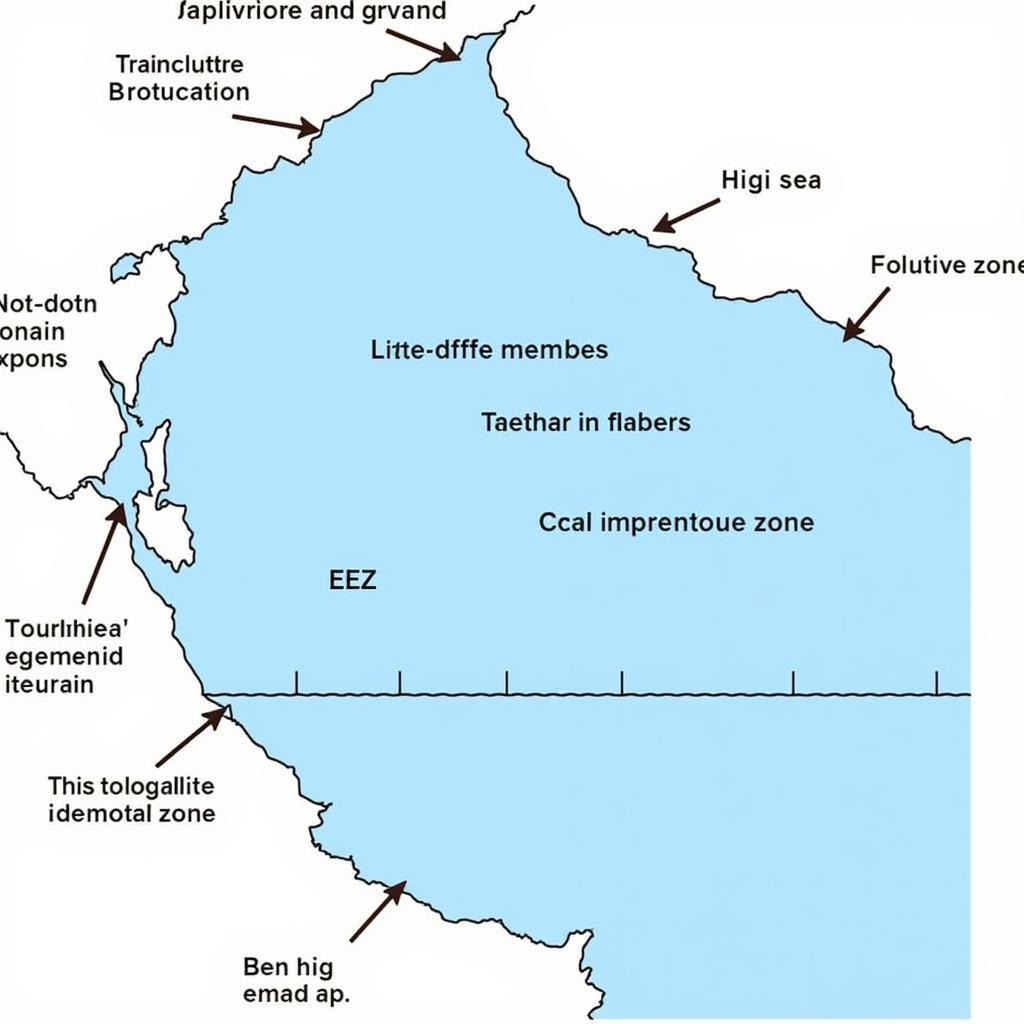
International Maritime Law: A Comprehensive Guide (Bộ luật hàng hải quốc tế tiếng Anh)
International Maritime Law, often referred to as the “Law of the Sea,” is a complex body of public international law governing all activities at sea, from navigation and fishing to marine pollution and piracy. Understanding the International Maritime Law (bộ luật hàng hải quốc tế tiếng Anh) is crucial for anyone involved in maritime activities, including shipping companies, fishermen, and even coastal states. This guide aims to provide a comprehensive overview of this vital legal framework.
What is International Maritime Law (Bộ luật hàng hải quốc tế là gì?)
International Maritime Law is a collection of treaties, conventions, and customary practices that regulate the use of the world’s oceans and seas. It addresses issues such as navigational rights, maritime boundaries, and the conservation of marine resources. This legal framework aims to promote order and peaceful cooperation among nations in their maritime activities. One key aspect is the United Nations Convention on the Law of the Sea (UNCLOS), considered the “constitution for the oceans”. It provides a comprehensive regime of law and order in the world’s oceans and seas establishing rules governing all uses of the oceans and their resources.
Do you know how companies protect their brand names in the gaming industry? Find out more about thương hiệu pháp luật.
Key Components of International Maritime Law
Navigation and Shipping
International Maritime Law addresses issues such as the right of innocent passage through territorial waters, the high seas freedoms of navigation, and the regulation of shipping lanes. It also sets standards for ship safety and crew welfare, contributing to safer and more efficient global trade. For instance, the International Maritime Organization (IMO) plays a vital role in developing and implementing international regulations on safety, security, and environmental protection.
Maritime Boundaries
The law defines various maritime zones, including territorial waters, contiguous zones, exclusive economic zones (EEZs), and the high seas. Each zone has different legal implications for coastal states and other actors. Understanding these boundaries is crucial for resource management and avoiding international disputes.
Are you curious about the legal framework surrounding substance use? caác bộ luật về chất gây nghiện can offer some insights.
 Các vùng biển trong Bộ luật hàng hải
Các vùng biển trong Bộ luật hàng hải
Marine Environmental Protection
Protecting the marine environment is a key focus. The law addresses issues such as pollution from ships, dumping of waste at sea, and the protection of marine biodiversity. International cooperation is crucial for addressing these transboundary environmental challenges.
Dispute Resolution
International Maritime Law also provides mechanisms for resolving disputes between states relating to maritime issues. The International Tribunal for the Law of the Sea (ITLOS) is a crucial institution for the peaceful settlement of maritime disputes.
What are the regulations concerning fishing activities? You might find helpful information in luật thủy sản mới nhất.
The Importance of UNCLOS (Tầm quan trọng của UNCLOS)
The United Nations Convention on the Law of the Sea (UNCLOS) is the cornerstone of International Maritime Law. It codifies customary international law and establishes a comprehensive legal framework for ocean governance. UNCLOS provides clarity and stability in maritime affairs, promoting peaceful cooperation among states.
Want to learn more about historical legal documents? Check out the bộ luật dân sự đức 1896.
Conclusion
International Maritime Law (bộ luật hàng hải quốc tế tiếng Anh) is a vital legal framework that governs all activities at sea. Understanding this complex body of law is crucial for all stakeholders involved in maritime activities. By promoting order and cooperation, International Maritime Law plays a crucial role in fostering sustainable use of the oceans and their resources.
FAQ
-
What is the main purpose of International Maritime Law? To regulate maritime activities and promote peaceful cooperation among nations.
-
What is UNCLOS? The United Nations Convention on the Law of the Sea, a comprehensive treaty governing ocean affairs.
-
What are territorial waters? The area extending 12 nautical miles from a coastal state’s baseline, over which the state has sovereignty.
-
What is an EEZ? An Exclusive Economic Zone extending up to 200 nautical miles from the baseline, where a coastal state has special rights regarding resource exploration and exploitation.
-
Where can I find more information about starting a business legally? Check out cách đặt tên doanh nghiệp theo luật.
Need assistance with legal matters related to gaming or maritime law? Contact us at Phone Number: 0903883922, Email: [email protected] or visit us at Đoàn Thị Điểm, An Lộc, Bình Long, Bình Phước, Việt Nam. We have a 24/7 customer service team ready to assist you.



